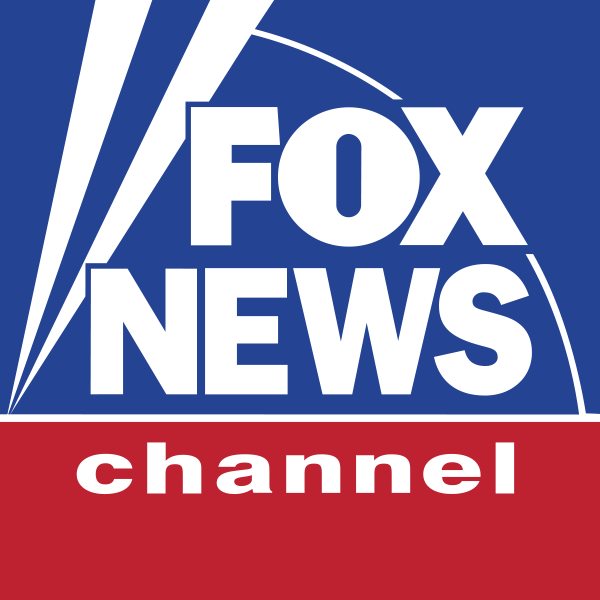The Ripple Effect of Misinformation: Health, Vaccines, and the Future of Public Trust
March 13, 2025, 10:00 pm
In the vast ocean of public health, misinformation is a tidal wave. It crashes over the shores of reason, leaving chaos in its wake. The recent measles outbreak in the United States is a stark reminder of this reality. As we navigate through the murky waters of vaccine skepticism, the role of leadership becomes crucial. The appointment of Robert F. Kennedy Jr. as Secretary of Health and Human Services has stirred a pot already bubbling with doubt and confusion. His statements on malnutrition and infectious diseases raise alarms, not just for their content but for the implications they carry.
The anti-vaccine movement is not a new phenomenon. It has roots that dig deep into the soil of American society, nourished by a blend of fear, misinformation, and distrust. The rise of this movement has been gradual, like a creeping vine that wraps around the pillars of public health. It gained momentum long before the political landscape shifted in 2016, but the advent of the COVID-19 pandemic provided it with a new lease on life. Misinformation spread like wildfire, fueled by social media and political rhetoric.
Kennedy's recent comments on the measles outbreak exemplify the dangerous dance between misinformation and public health. He suggested that malnutrition, rather than vaccination, is a key factor in the severity of measles cases. While nutrition undoubtedly plays a role in health outcomes, to downplay the importance of vaccines is akin to ignoring the lifeguard while drowning. Vaccines are the buoy that keeps us afloat in the sea of infectious diseases. They are not just a safety net; they are a lifeline.
The measles outbreak, which began in January, has claimed lives, including that of a school-aged child. This tragedy underscores the urgency of clear communication from health officials. Yet, Kennedy's mixed messages create confusion. He oscillates between advocating for vaccination and suggesting alternative strategies that undermine the very foundation of herd immunity. This inconsistency is a disservice to public health and a betrayal of the trust placed in him as a leader.
The implications of his statements extend beyond the immediate crisis. They sow seeds of doubt in the minds of parents, leading them to question the safety and efficacy of vaccines. This skepticism can ripple through communities, eroding herd immunity and paving the way for outbreaks of preventable diseases. The consequences are dire. Children, the most vulnerable among us, bear the brunt of this negligence.
Moreover, Kennedy's assertion that "if you are healthy, it’s almost impossible for you to be killed by an infectious disease" is not just misleading; it is dangerous. It suggests a false sense of security that can lead to complacency. Infectious diseases do not discriminate based on health status. They can strike anyone, regardless of how well-nourished or fit they may be. The reality is that diseases like measles can lead to severe complications, even in healthy individuals.
The irony is palpable. While Kennedy points to malnutrition as a significant factor, the administration he serves is simultaneously cutting nutrition programs. This contradiction highlights a fundamental flaw in the approach to public health. It is not enough to address one aspect of health while neglecting others. A holistic approach is essential. Vaccines and nutrition must work hand in hand to protect the population.
As we look to the future, the need for clear, consistent messaging from health leaders is paramount. The public deserves transparency and honesty, especially in times of crisis. The erosion of trust in science and public health institutions can have long-lasting effects. It is a slippery slope that can lead to a breakdown in community health.
In contrast, organizations like Veganuary are making strides in promoting health through dietary changes. Their recent campaign, which saw participation from millions worldwide, emphasizes the power of collective action. They challenge dietary norms and encourage individuals to explore plant-based options. This movement is not just about food; it’s about reshaping perceptions and fostering a culture of health and sustainability.
As Veganuary transitions to new leadership, the opportunity for growth and innovation is ripe. The incoming CEO, Wendy Matthews, has the chance to build on a strong foundation and inspire even more people to embrace healthier lifestyles. This is the kind of leadership that fosters trust and encourages positive change.
In conclusion, the battle against misinformation in public health is ongoing. The stakes are high, and the consequences of inaction are severe. As we navigate these turbulent waters, we must demand clarity and accountability from our leaders. The health of our communities depends on it. Vaccines are not just a choice; they are a necessity. The future of public health hangs in the balance, and it is up to us to ensure that the tide turns in favor of truth and science.
The anti-vaccine movement is not a new phenomenon. It has roots that dig deep into the soil of American society, nourished by a blend of fear, misinformation, and distrust. The rise of this movement has been gradual, like a creeping vine that wraps around the pillars of public health. It gained momentum long before the political landscape shifted in 2016, but the advent of the COVID-19 pandemic provided it with a new lease on life. Misinformation spread like wildfire, fueled by social media and political rhetoric.
Kennedy's recent comments on the measles outbreak exemplify the dangerous dance between misinformation and public health. He suggested that malnutrition, rather than vaccination, is a key factor in the severity of measles cases. While nutrition undoubtedly plays a role in health outcomes, to downplay the importance of vaccines is akin to ignoring the lifeguard while drowning. Vaccines are the buoy that keeps us afloat in the sea of infectious diseases. They are not just a safety net; they are a lifeline.
The measles outbreak, which began in January, has claimed lives, including that of a school-aged child. This tragedy underscores the urgency of clear communication from health officials. Yet, Kennedy's mixed messages create confusion. He oscillates between advocating for vaccination and suggesting alternative strategies that undermine the very foundation of herd immunity. This inconsistency is a disservice to public health and a betrayal of the trust placed in him as a leader.
The implications of his statements extend beyond the immediate crisis. They sow seeds of doubt in the minds of parents, leading them to question the safety and efficacy of vaccines. This skepticism can ripple through communities, eroding herd immunity and paving the way for outbreaks of preventable diseases. The consequences are dire. Children, the most vulnerable among us, bear the brunt of this negligence.
Moreover, Kennedy's assertion that "if you are healthy, it’s almost impossible for you to be killed by an infectious disease" is not just misleading; it is dangerous. It suggests a false sense of security that can lead to complacency. Infectious diseases do not discriminate based on health status. They can strike anyone, regardless of how well-nourished or fit they may be. The reality is that diseases like measles can lead to severe complications, even in healthy individuals.
The irony is palpable. While Kennedy points to malnutrition as a significant factor, the administration he serves is simultaneously cutting nutrition programs. This contradiction highlights a fundamental flaw in the approach to public health. It is not enough to address one aspect of health while neglecting others. A holistic approach is essential. Vaccines and nutrition must work hand in hand to protect the population.
As we look to the future, the need for clear, consistent messaging from health leaders is paramount. The public deserves transparency and honesty, especially in times of crisis. The erosion of trust in science and public health institutions can have long-lasting effects. It is a slippery slope that can lead to a breakdown in community health.
In contrast, organizations like Veganuary are making strides in promoting health through dietary changes. Their recent campaign, which saw participation from millions worldwide, emphasizes the power of collective action. They challenge dietary norms and encourage individuals to explore plant-based options. This movement is not just about food; it’s about reshaping perceptions and fostering a culture of health and sustainability.
As Veganuary transitions to new leadership, the opportunity for growth and innovation is ripe. The incoming CEO, Wendy Matthews, has the chance to build on a strong foundation and inspire even more people to embrace healthier lifestyles. This is the kind of leadership that fosters trust and encourages positive change.
In conclusion, the battle against misinformation in public health is ongoing. The stakes are high, and the consequences of inaction are severe. As we navigate these turbulent waters, we must demand clarity and accountability from our leaders. The health of our communities depends on it. Vaccines are not just a choice; they are a necessity. The future of public health hangs in the balance, and it is up to us to ensure that the tide turns in favor of truth and science.

